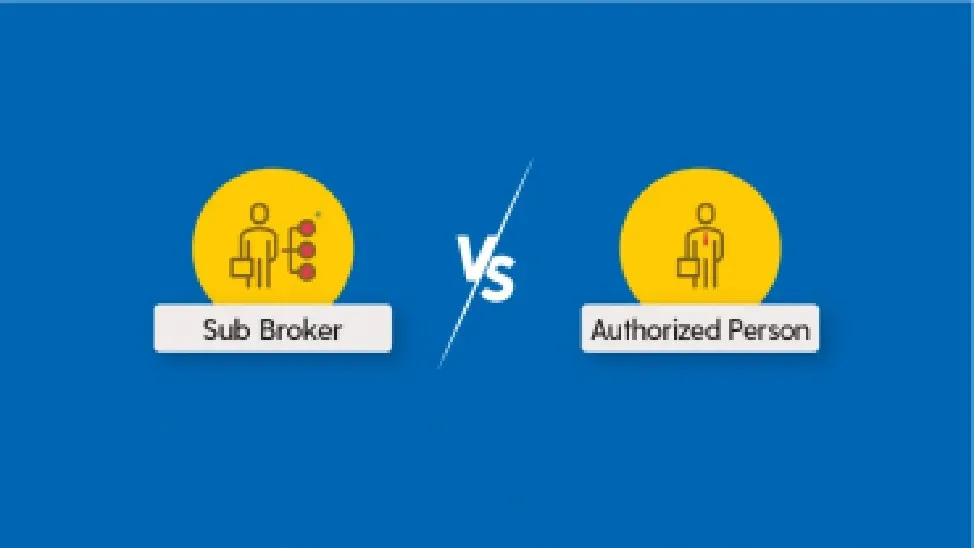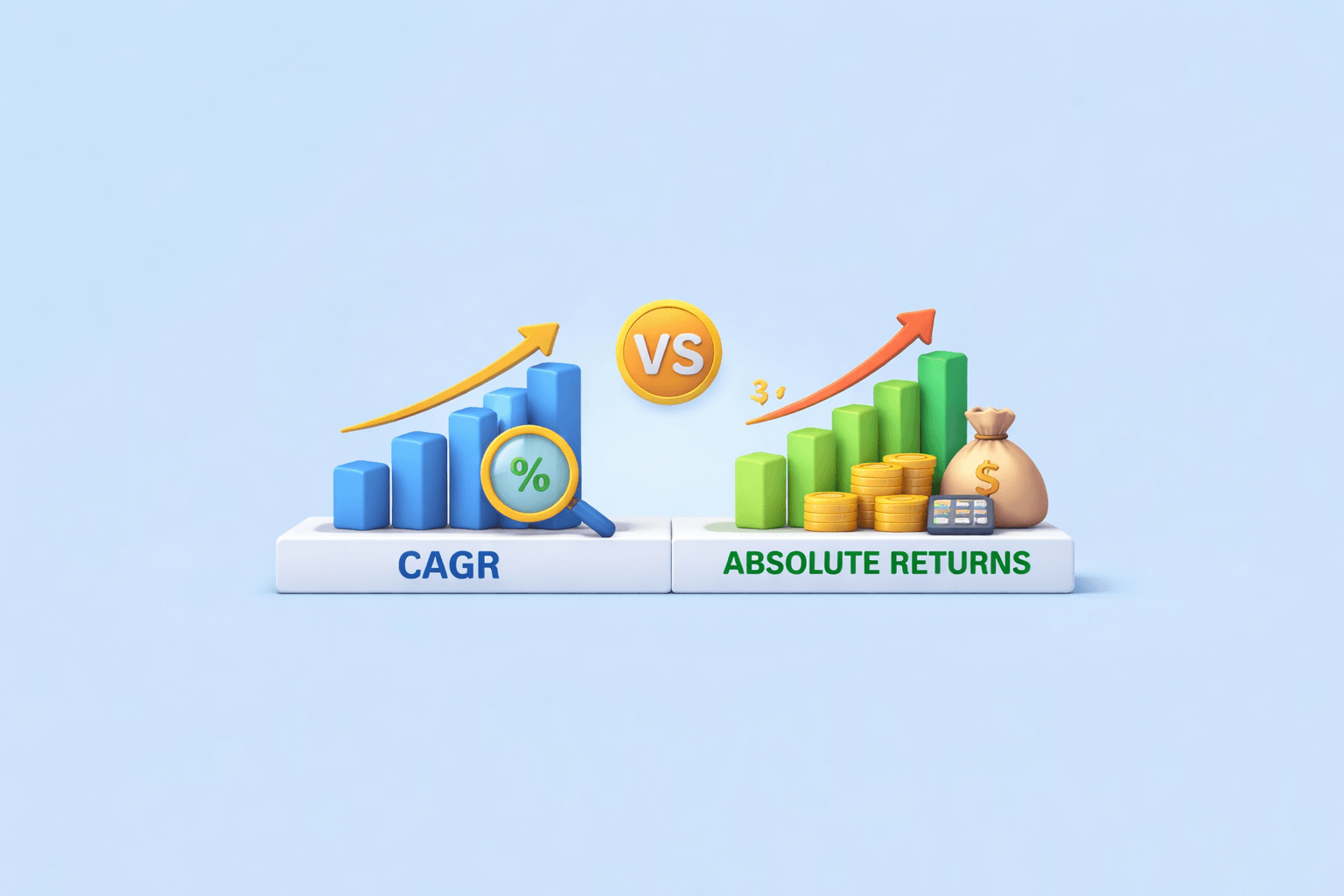- Home
- Blog
- Sub Broker
- Difference Between Sub Broker And Authorized Person
- Difference Between Sub Broker And Authorized Person
Difference Between Sub Broker And Authorized Person

- Published Date: January 04, 2021
- Updated Date: January 29, 2025
- By Team Choice
We have already discussed the Difference between stock broker and sub broker, an authorised person and a sub-broker franchise are two business models offered by a broking house that are also often confused. And they are not very different from one another in many aspects. The obligation and liability of both are the same.
Some people are confused about the difference between sub broker and an authorized person, despite some very crucial differences. Many potential partners of a business looking to start up in this industry are uncertain of which one they should choose for their venture, but that’s understandable!
Have you ever felt unsure of the safest, most appropriate choice to make with your investments? As financial specialists, we want to assure you that we not only understand your hesitancy but also the demand.
In this article, we discuss the difference between an authorized person and sub broker from various angles. We already have discussed sub broker in our other articles but it’s important to discuss it here as well so that you can get a clear picture of the differences between sub brokers and authorized persons. Let’s start with understanding about sub broker & authorized person:
What Is A Sub Broker?
Sub brokers serve as a bridge between stockbrokers and their clients, linking the two parties. As an agent of the broker, they provide services such as sourcing new clients and client management.
Sub broker receives a percentage of fees and charges collected by the stockbroker in return for these duties. Meanwhile, a stockbroker can have a broad customer base across multiple locations through an ongoing network of how to open a sub-broker franchise while still maintaining quality service to all of them.
Who is An Authorised Person?
An authorized person is the individual appointed by a stockbroker to give access to the trading terminal. The person has access to the company’s tools and technology for increased performance, high-volume work, increased responsibility, and experienced backing.
They provide an authorized presence to trade securities in one or more than one securities segment. An authorized person can work from any location, as long as they have a phone connection and permission authorization from their broker-dealer if you want to become one you can also become an authorised person in your area.
Difference Between Sub Broker And Authorised Person?
So, what is the actual difference between sub-brokers and authorized persons? The difference lies mostly in the roles each one of them needs to fulfil. Let’s take a look at how they compare.
A sub broker is any person who assists stockbrokers by acting on behalf of them or for assisting investors in buying, selling, or dealing in securities through members of the board. A sub broker basically acts on behalf of a stockbroker in exchange for a cut of the brokerage for clients he refers to.
SEBI defines an authorized person as: “an individual, partnership firm, LLP or body corporate who is appointed as such by a stockbroker (including trading member) and who provides access to a trading platform of a stock exchange as an agent of the stockbroker.”
Sub brokers and authorized persons differ in one way. Authorized persons only need to register with the exchange they are working with, while sub brokers also need to register with the Securities Exchange Board of India (SEBI).
With the introduction of a new category in 2018, all authorized persons have been unified under SEBI. Anyone acting as an agent for a client without an agreement will need to register with SEBI or stop their business.
Become a Sub Broker with Low Deposit.
- Highest Revenue Sharing
- Upto ₹ 1000 Per Account Incentive*
- Local Branch Support
- Lifetime Income Source
SEBI Circular On Authorized Persons
- SEBI has instructed stock exchanges not to offer any new registrations for the position of a sub broker and pending applications will be returned to the applicants.
- A SEBI Circular was announced with details on migration from one authorization status to another being postponed. Previously, the auspicious date of 31 December 2017, when it would have been difficult for SEBI to issue new certificates in a time-bound manner, had been the initial due date for migration/ withdrawal.
- Sub brokers can either meet the criteria of capitalization to become a Trading Member (TM) in the stock exchange they are registered with or submit their application for becoming an Authorized Person (AP).
Registration For Sub Broker And Authorized Person
Sub brokers and authorized representatives will need to register with SEBI and be affiliated to a trading member of any stock exchange, like the National Stock Exchange (NSE) or Bombay Stock Exchange (BSE).
It’s becoming increasingly difficult for authorized persons to complete registration papers. Brokers do the hard work, then simply ask an authorized person via email to register by filling a form with the main broker. All the information collected is shared with enforcement agencies.
When an AP deals in more than one product, they are required to register separately for both, but it is different if they want to deal as a sub broker.
Having said that, SEBI has now mandated that sub brokers are either to be converted into fully authorized persons or have their licenses cancelled.
Initial Deposit For Sub Broker And Authorized Person
A sub broker will deposit ₹50,000 – ₹3,00,000 security money as an initial deposit. In summary, to start your business as a sub broker you need ₹50,000 – ₹10,00,000 from an authorized person.
A sub broker requires a minimum of ₹10,000 initial deposit to start sub broker franchise. The range fluctuates depending on how much the person wants to pay for his or her authorization.
Revenue Sharing Ratio For Sub Broker And Authorized Person
A sub broker gets a percentage of revenue generated by their clients. However, that percentage is fixed at the time of an agreement between both parties and ranges from 50%-80%.
An authorized person receives less revenue share in comparison to the sub broker. The range is 20%-50%. An authorized person spends less time on client participation compared with the average time spent by the sub broker.
Agreement For Sub Broker And Authorized Person
When there is a situation of two brokers holding deposits granted by the same person, an independent third party is needed for transparency. They essentially act as an intermediate “tri-party” in which one of the brokers is an agent hired by the other. A sub broker enters into this agreement with one company, working personally to broker trades while another broker will transact on their behalf. This makes the process more efficient and ensures transparency.
An authorized person enters into an agreement between two parties only, while a sub broker enters into an agreement between three parties.
Conclusion
It’s important to understand what type of investor you are before investing. Both authorized person and sub broker plays an important role in working with the stock market. However, they have some distinct differences that may need to be considered. Upon beginning your investment plans, always be sure you partner with a trusted and reliable financial partner.
Recommended for you

Equity vs Mutual Fund: Key Differences, Benefits, and Which Is Right for You

CAGR Vs Absolute Returns in Mutual Funds: Key Differences You Should Know

FII DII Data - Live Data
